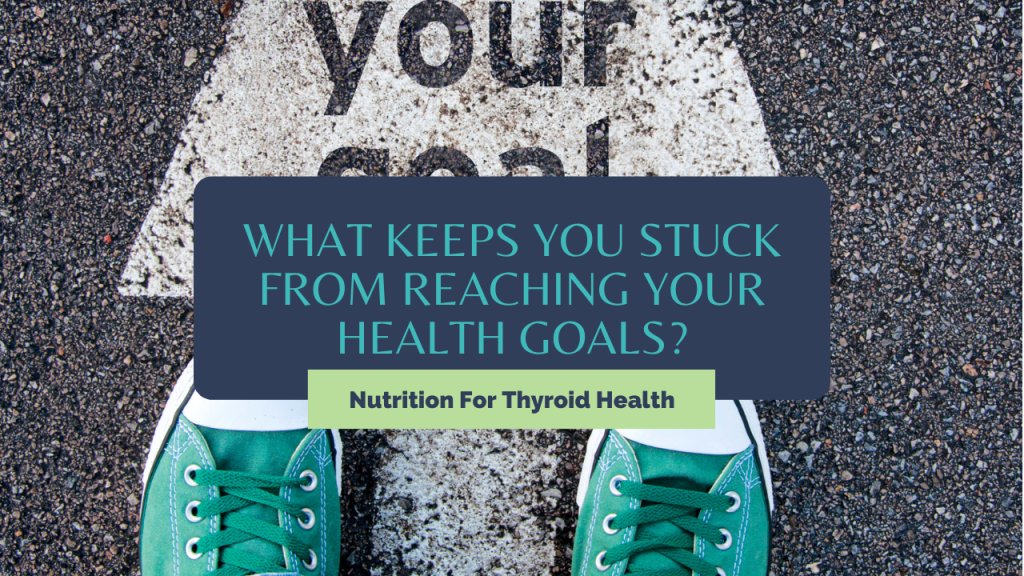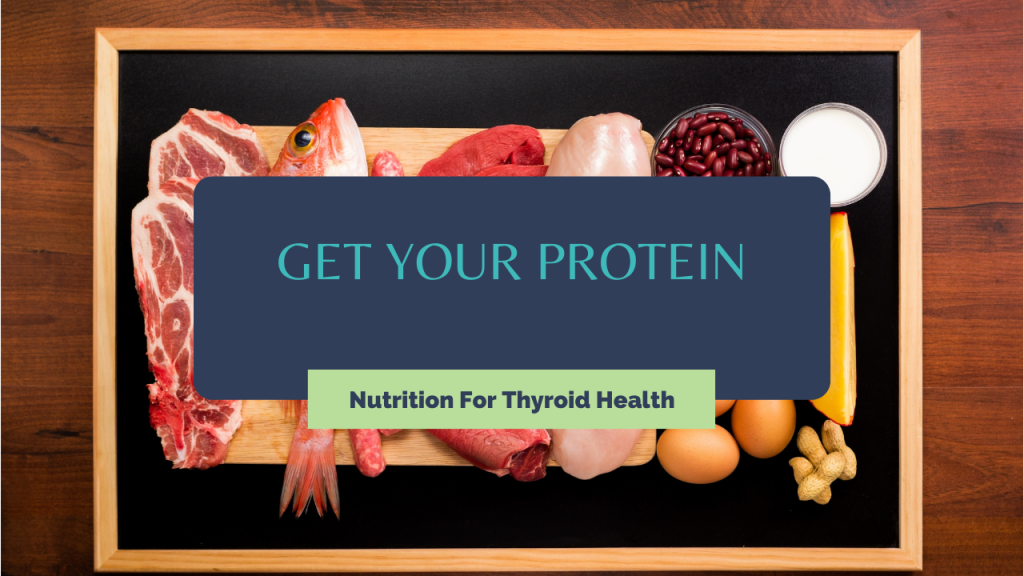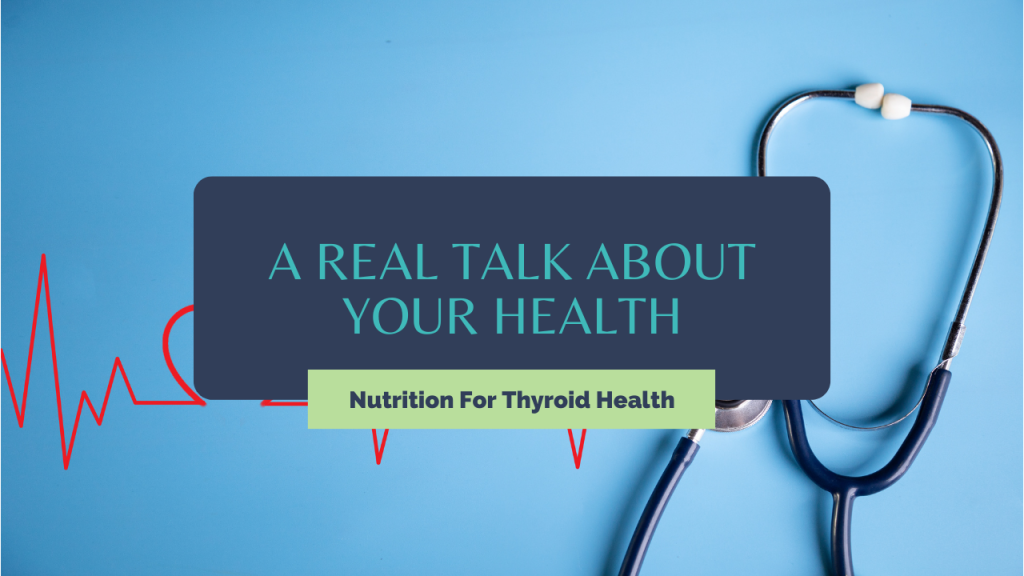A Cautionary Tale About Stress & Your Thyroid
The word “stress” has become so overused that it gets watered down. We’re desensitized to the effects of stress even though we’re all walking around in a stressed-out state. We keep running on empty to the point where we’re unaware of the major impact that stress can have on our bodies. And sooner or later, it makes us sick.
It happens to me, too. I go through bouts of stress, and it eventually catches up with me. This is coming from someone who should be an expert in my own health. That is to say, even those of us who are well-versed in the effects of stress will get caught off-guard when stress sneaks up on us.
And that is what happened to me this past year. So, I wanted to address that in the context of what stress is and how it works in our bodies.
The Science of Stress
The major organs or glands that affect and help manage our stress management system include the adrenal glands. These small, walnut-shaped glands sit right on top of your kidneys. Nutritionally and biochemically speaking, adrenal glands require a ton of B vitamins, along with vitamin C, to function and to help you manage your day-to-day stress.
Let’s take a normal stressor in most people’s lives, like the holiday season. We often allow the alcohol, sugar, lack of sleep, financial pressure, and social events to catch up with us. That’s all on top of normal, everyday stress, like waking up, driving in traffic, making sure we have a lunch packed, making sure the kids’ backpacks are ready to go, making sure dinner is prepared and planned, buying groceries, and just doing the run-of-the-mill everyday stuff on top of the stress that may come with your job.
Look at What You Can Control
In these scenarios, look at things that you can control. Can you somewhat control the holiday situation? Are there toxic people in your life? Do you need to be around them? If so, how will you manage that to minimize the stress that they may or may not be causing you? What about excess things that you’re putting into your diet?
It’s things like that, that add to the stress on our system. Yet you can control a lot of that. You don’t have to have a glass of wine every night before you go to bed. You don’t have to drink every weekend to excess. You don’t have to have a dessert every single night with all the sugar.
Is There Good Stress Vs. Bad Stress?
When I do one-on-one consultations with people, some people might come across as not stressed out. They don’t feel very stressed. They have a pretty easy life. They don’t worry about money. They don’t worry about kids, or whatever it may be. But then we dig deeper, and we find that there are some stressors in their life that have been there for so long they don’t even realize how it impacts their health.
Think of the people who say “I really love my job, but I work 12 hours a day. So it’s kind of a good stress. It’s just that I work long hours.” And then some people will say, “Yeah, I’m really stressed out dealing with an elderly sick family member.”
The thing is, we mentally compartmentalize good stress and bad stress. The body doesn’t know the difference.
I always use the example that whether you’re planning for a funeral or planning for a wedding, which should have very opposite feelings, they’re both stressful. Both of them are causing problems in your stress management system.
The Thyroid-Stress Link
How does this apply to thyroid people? The stress management system needs to be optimized and intact for everybody, not just thyroid patients; but thyroid patients tend to have a weaker response to stress. They’re not as hardy when it comes to added stressors.
As someone who has dealt with thyroid cancer and other thyroid issues for a long, long, long time, I have seen over and over again that stress and thyroid dysfunction do not play well together. Any excess stress for a longer period of time wipes me out.
Sometimes I see it coming, and other times I don’t. This last time I did not see it coming. I had added a lot of stuff to my business, and I’d put a lot of pressure on myself when it came to my business and other things going on in my life. I had one child graduating from high school and moving to college, and another one moving and starting her last semester of college.
By the time October and November came around, I was flatlined for 2022. It literally took me out of the game. I laid on the couch every day, practically for a few months. I did the bare minimum of what I had to do for my business, for my house, for myself.
It got to the point where I needed a med change because of all this. That’s what’s scary, when you don’t have a thyroid gland and you are 100% dependent on thyroid medication. It’s very scary when all of a sudden you don’t seem to be absorbing the medication.
Recognizing Your Stress Patterns
Whether you have a thyroid problem or you are someone who has a lot of stressors pulling you in different directions, try to think of a different way of navigating your life:
- What can you do to get rid of stressors?
- Who or what do you need to cut out of your life?
- What do you need to say no to?
- What boundaries do you need to put up?
- What do you need to do to actually help yourself when it comes to fueling those adrenals and helping that stress management system in your body?
When our stress is supported, our stress management system is supported, and we are able to get through things a lot easier than without. You can start by not underestimating the stressors in your life. Try journaling a personal assessment of your stressors, what you can do to change them, and how you can bring more control to situations that feel chaotic.
If you’re looking for more support in navigating stress, consider the All Year Resolution membership. This affordable, group-type program is for anyone wanting to do something differently without turning to quick fixes. We use real food, real lifestyle changes, lots of nutrition, education, and health education — all at fraction of the cost of working one-on-one with me.
Let’s Connect!
Say goodbye to fatigue and hello to a full and vibrant life! Join me over in my Facebook group where we are talking all about how to take back control of your health!
Be sure to follow me on my Facebook, TikTok, Instagram and Pinterest for tips and tricks on how to use nutrition to live your very best life!
A Cautionary Tale About Stress & Your Thyroid Read More »





